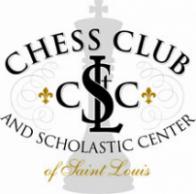This 2011 dissertation, conducted during the 2010-11 academic year at over 30 primary schools in Italy, examined the effect of chess instruction on mathematics achievement for third grade students. In each participating school, one third grade class was randomly assigned to receive in-class chess instruction, receiving approximately 30 hours of instruction throughout the year from certified staff. 950 students were enrolled in the treatment classrooms, with a control group of 806 students. A math assessment designed by the author was given to all third grade students in the treatment and control classrooms at the beginning and end of the academic year. The study found that participation in chess instruction increased math scores, with students in the south of the country and foreign-born students showing greater gains than their northern and native counterparts. The effect size of the math growth caused by the chess program was 0.340, or approximately one third of a standard deviation, and is statistically significant. This study was eligible for inclusion in the systematic literature review and categorized as a Tier I study. However, the results may not be generalizable to other schools, as participating schools were recruited through the author’s network and were not randomly chosen for participation.
OUR MISSION It is the mission of the Saint Louis Chess Club, an educational organization, to maintain a formal program of instruction to teach the game of chess and to promote and support its educational program through community outreach and local and national partnerships to increase the awareness of the educational value of chess.

Wheelchair access is available in the rear of the STLCC building. Please proceed through the parking lot to our east and around to our back door. If you need additional assistance, please contact us at 314-361-2437 .
The STLCC does not discriminate on the basis of race, color, religion, national origin, sex, sexual orientation, gender identity, age, ancestry, citizenship, genetic information, veteran status, marital status, pregnancy, disability, and any other category protected by applicable federal, state, or local laws or regulations in administration of its educational policies, admissions policies, scholarship and loan programs, events, programs, or activities.
The Saint Louis Chess Club complies with the Internal Revenue Service's guidelines regarding publication of its non-discrimination policy in its brochures, catalogs, advertisements and otherwise making it known to the general community.
Any violation of this policy should be reported the General Manager, Joy Bray, jbray@saintlouischessclub.org - 314.361.2437, Administrative Director, Tad Middleton, tmiddleton@saintlouischessclub.org -314.361.2437 and/or the HR Manager, Cathy Gallaher, cgallaher@saintlouischessclub.org - 314.332.5582.

The integrity of Saint Louis Chess Club's relationship with minor players is paramount to the Chess Club's educational mission and success. All individuals employed by or working under the direction or authority of the Saint Louis Chess Club are expected and required to maintain appropriate boundaries and relationships with minors and are strictly prohibited from engaging in sexual misconduct, hazing and harassment.

We encourage any victim or other persons with information regarding inappropriate conduct to contact Cathy Gallaher, Saint Louis Chess Club HR Manager at cgallaher@saintlouischessclub.org. You may also make a report confidentially, and if you wish, anonymously, through our ethics reporting hotline managed by Navex at (833)221-3624.


